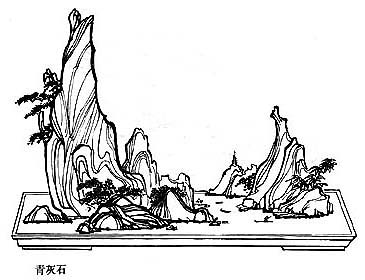論
語
Lun Yu 
 – The Analects of Confucius
– The Analects of Confucius
The Master discusses with his disciples and unveil his preoccupations with society. Tr. Legge (en), Lau (en) and Couvreur (fr).
Lunyu VI. 2. (122)
The characters of Zan Yung and Tsze-sang Po-tsze, as regards their aptitude for government.
[...] 2. Chung-kung asked about Tsze-sang Po-tsze. The Master said, " He may pass. He does not mind small matters."
3. Chung-kung said, "If a man cherish in himself a reverential feeling of the necessity of attention to business, though he may be easy in small matters in his government of the people, that may be allowed. But if he cherish in himself that easy feeling, and also carry it out in his practice, is not such an easymode of procedure excessive?"
4. The Master said, "Yung's words are right."
Legge VI.1.
Chung-kung asked about Tzu~sang Po-tzu. The Master said, 'It is his simplicity of style that makes him acceptable.' Chung-kung said, 'In ruling over the common people, is it not acceptable to hold oneself in reverence and merely to be simple in the measures one takes? On the other hand, is it not carrying simplicity too far to be simple in the way one holds oneself as well as in the measures one takes?' The-Master said, 'Yung is right in what he-says.'
Lau [6:2]
[...] Tchoung koung interrogea Confucius sur Tzeu sang Pe tzeu. Le Maître répondit : « Il a de bonnes qualités ; il se contente aisément. » Tchoung koung dit : « Être soi-même toujours diligent, et ne pas exiger trop de son peuple, n'est-ce pas louable ? Mais être soi-même négligent, et exiger peu des autres, n'est-ce pas se contenter trop facilement ? » Le Maître répondit : « Ioung, vous dites vrai. » Si [un officier] prend la ferme résolution d'être diligent, il a une détermination, et se gouverne lui-même avec sévérité. Si de plus il exige peu du peuple, les charges imposées ne sont pas nombreuses, et le peuple n'est pas molesté. Mais s'il se propose avant tout de se contenter aisément, il n'a pas de détermination, et il est très indulgent envers lui-même. Si de plus, dans les affaires, il se contente de peu, n'est-ce pas une négligence excessive et l'abandon de toutes les lois ? Dans les Traditions de famille sur Confucius, il est rapporté que Tzeu sang Pe tzeu ne portait à la maison ni tunique ni bonnet. Confucius l'a blâmé d'avoir voulu que les hommes vécussent comme les bœufs et les chevaux. (Tchou Hsi)
Couvreur VI.1.
Nabi bersabda, "Bolehlah !. Ia seorang yang longgar".
b. Zhong-gong berkata, "Seorang yang di dalam hatinya benar-benar menaruh hormat akan tugas dan berhati longgar dalam memerintah rakyat, memang boleh juga. Tetapi kalau longgar terhadap diri sendiri dan longgar di dalam perbuatan, bukankah itu terlalu longgar ?"
c. Nabi bersabda, "Kata-kata Yong ini memang benar".

The Analects of Confucius – Lun Yu VI. 2. (122) – Chinese on/off – Français/English
Alias the Lunyu, the Lun Yü, the Analects, les Entretiens du maître avec ses disciples.
The Book of Odes, The Analects, Great Learning, Doctrine of the Mean, Three-characters book, The Book of Changes, The Way and its Power, 300 Tang Poems, The Art of War, Thirty-Six Strategies
Welcome, help, notes, introduction, table.
Index – Contact – Top























